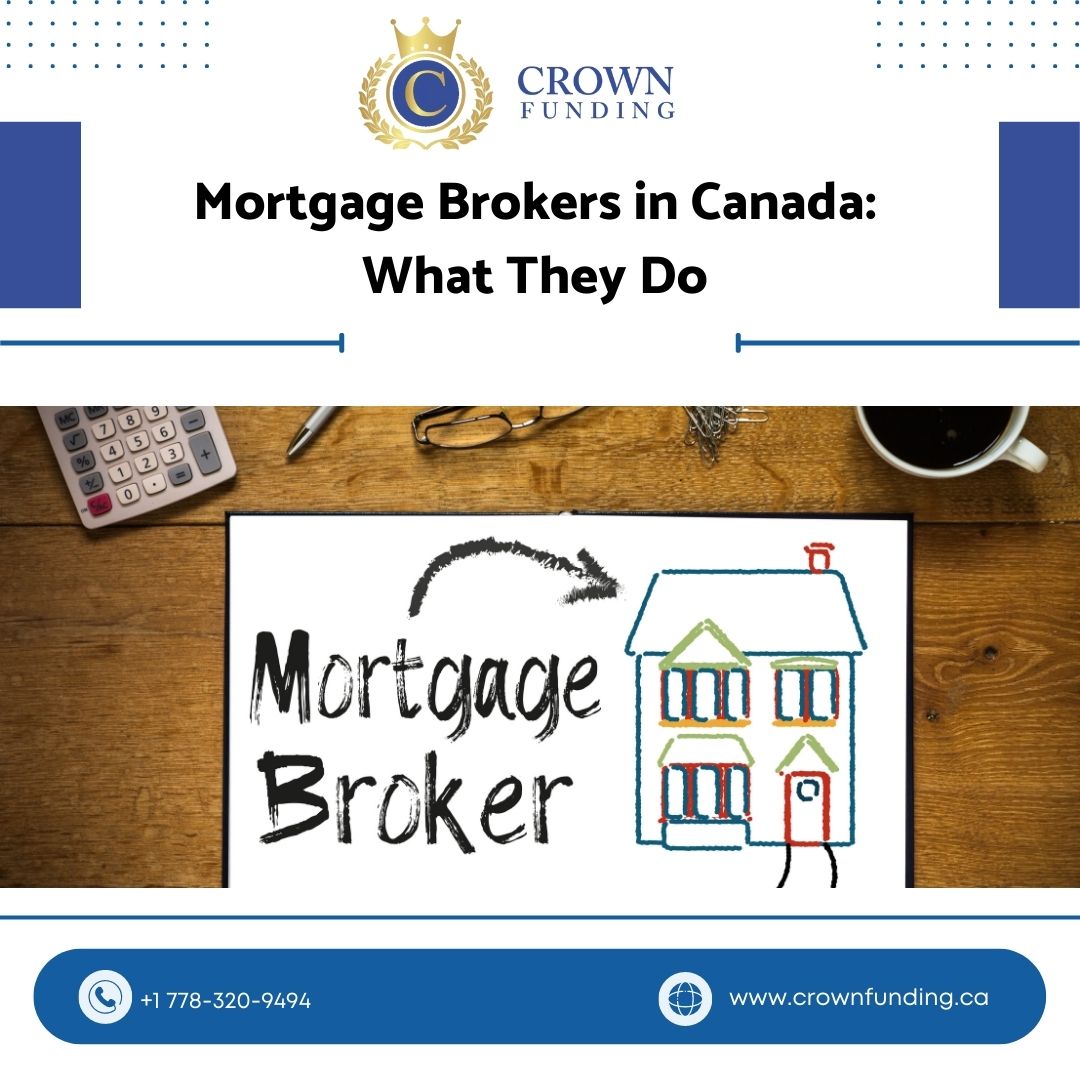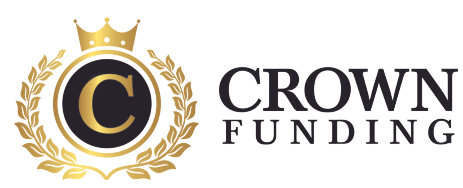
Mortgage Brokers in Canada: What They Do
A mortgage brokers in Canada assists home purchasers in locating the best mortgage solution and interest rate for their specific financial condition. If you’ve never had a mortgage or relied on banks for a home loan, you may have never met a mortgage broker.
Mortgage brokers in Canada have unique relationships with lenders, including non-bank financial institutions, which can increase your chances of getting a mortgage that fits your budget, lifestyle, and financial goals — and save you money.
What exactly is a mortgage broker?
A mortgage broker is a certified professional who is a go-between for homebuyers needing finance and mortgage lenders that supply it.
Brokers do not lend their own money or work for financial institutions directly. Instead, they evaluate your borrowing needs and compare them to the mortgage packages and interest rates available from various lenders, ranging from Canada’s largest banks to local private lenders.
Once they’ve identified a few mortgage choices that appear to be a good fit, a broker will share the offers with you and assist you in selecting the best one.
Getting the best mortgage rate is similar to finding the best credit card. You should ideally shop about and make thorough comparisons before selecting, but you may need more time, mental energy, or confidence.
A mortgage broker handles these comparisons for you, explaining the differences and assisting you in determining how much each will cost you. After you’ve decided on the best loan offer, your broker will help you submit your application to the proper lender.
What other services does a mortgage broker provide?
A mortgage broker does more than find your best interest rate. Brokers will assess how much mortgage you can afford based on your salary, credit history, and the current lending market. This is a helpful resource for first-time home purchasers whose expectations may sometimes match reality.
A skilled broker will be your advocate when speaking with lenders who may be hesitant to fund your mortgage. In these circumstances, brokers may push a lender’s underwriter to reconsider the data or tell them the whole narrative of your financial stability, which cannot always be stated in numbers.
A mortgage broker can negotiate better conditions and cheaper interest rates with lenders. Sometimes, this is an option, but you can ask them to do it.
What is the difference between mortgage brokers, advisors, specialists, and agents?
Several professionals have the word “mortgage” in their job titles. They can all assist you in obtaining a mortgage in Canada, but they serve different purposes.
Mortgage brokers and Mortgage Agents
Mortgage brokers and agents analyze the mortgage options and interest rates offered by several lenders to locate the best home loan for you. Your broker or agent will next forward your application to the lender of your choice.
The fundamental distinction between brokers and agents is that brokers have obtained additional accreditation that permits them to manage agents and carry out compliance-related duties.
Mortgage Advisors & Specialists
Mortgage advisers and mortgage specialists do comparable work, but instead of dealing with numerous financial institutions, these are in-house mortgage professionals at banks and mortgage lenders. They will still help you discover a suitable mortgage, but their options will be limited to products supplied by the institutions for which they work.
An RBC mortgage advisor, for example, will not provide access to mortgages supplied by another bank, such as CIBC, or by a mortgage finance firm, such as MCAP. On the other hand, a broker may have ties to all three institutions.
How do mortgage brokers get paid?
Mortgage brokers are often compensated on commission, which means they are paid when a borrower executes a mortgage deal. In most circumstances, the lender pays the broker’s commission costs, not the borrower.
A broker’s compensation usually is 0.5%-1.2% of the total mortgage amount, although it will vary depending on several factors, including the duration and type of mortgage you committed.
A mortgage broker rarely charges a creditworthy borrower any fees. But if you back out of a mortgage after it has been granted, you may be charged a cancellation fee.
Mortgage brokers may charge a one-time fee for clients who can not readily qualify for a mortgage – perhaps because they cannot pass the mortgage stress test or have a poor credit score. The borrower pays mortgage broker fees, which range between 0.5% and 2% of the loan amount.
This charge pays the broker for the additional work required to obtain approval for borrowers with more complex applications. All broker fees should be mentioned upfront and in your contract, so ask about — and understand — all costs before signing.
Choosing a Mortgage Brokers in Canada.
According to Mortgage Professionals Canada, roughly 30,000 licensed brokers, agents, and other mortgage professionals are working across the country. Finding the correct one necessitates some research.
Examine a broker’s website for feedback, accreditation, and any accolades they may have received. Please don’t stop there: look into the reviews they’ve received elsewhere; they may be more objective than a prominently featured on-site testimonial. Get recommendations from friends and relatives who have recently purchased their own houses. An excellent broker is worth recommending.
When you’ve identified a broker, you’d want to deal with, schedule a meeting or phone to ask a few questions and determine whether they suit your circumstances.
The following are some questions to ask a potential broker:
- How long have they been in the mortgage industry?
- What were they doing before becoming a mortgage broker? Someone who has recently transitioned into mortgages after selling used cars. For example, may lack the same experience as someone who has worked in a bank or real estate agency before becoming a broker.
- What are their professional credentials? Are they current?
- What are some examples of complex mortgage approvals they were able to obtain?
- How many lenders do they work with? The greater the number, the more rates and product alternatives they will be able to examine for you.
- What distinguishes them from their rivals? If the answer is “low rates” and nothing else, you might want to keep looking.
Taking the time to meet with your potential mortgage broker will also indicate how knowledgeable they are and how they will treat you if you work together.
The benefits and drawbacks of utilizing a mortgage broker
If you want a house loan, you’ll need to engage with a mortgage professional. But you don’t have to use a mortgage broker. Weighing the benefits and drawbacks of working with a mortgage broker over a bank or direct lender will help determine if that is the path to finance you want to take.
Advantages of a Mortgage Broker
- Mortgage brokers provide a one-stop shop for mortgage solutions and expert advice to help you improve your finances and appear more creditworthy to lenders.
- Brokers are typically independent and will not require to recommend the mortgage products of any particular financial institution.
- Brokers can get you a lower interest rate and a more flexible loan package because they have ties with various lenders.
- You will not have to pay any fees if you have good credit.
- Many brokers specialize in assisting clients in complex financial conditions to obtain mortgages.
Disadvantages of a Mortgage broker
- Brokers need access to every lender, and less experienced brokers may have fewer lender ties than those with a long history in the sector.
- Borrowers with more complex applications may have to pay an additional fee.
- Choosing from the many possibilities available from a broker might take a lot of work.
- You may need to organize more documents and documentation if your broker has to shop your mortgage at various lenders.
- If you deal with a broker, you may not take advantage of a long-standing connection with a bank.
To get Best Mortgage Interest Rates in Canada. Compare Canada’s top mortgage lenders and brokers side by side to find the best mortgage rates for your needs. For More Details Visit Our Website
